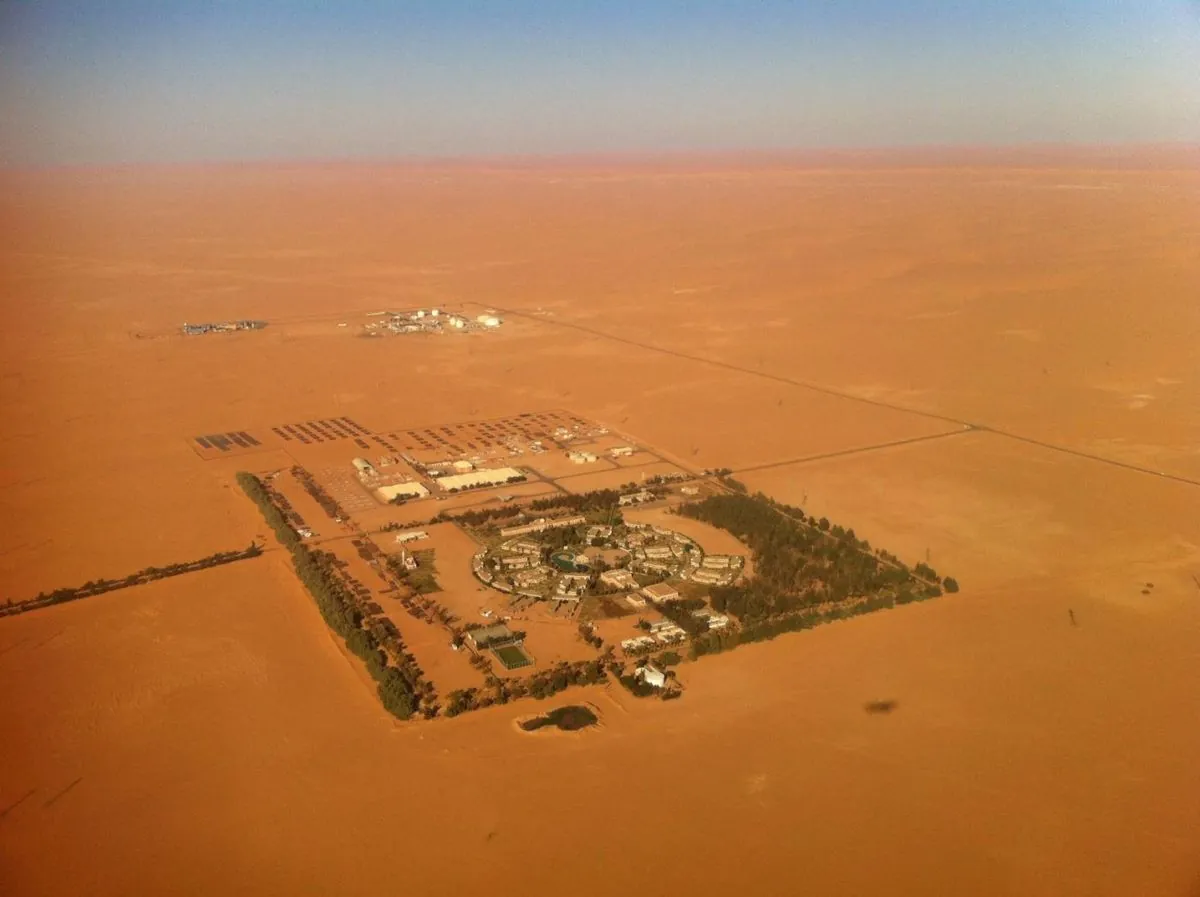Libya's oil industry, the backbone of its economy, is experiencing significant disruptions as field closures spread across the country. The Sarir field, Libya's largest oil field discovered in 1961, has nearly ceased production, according to field engineers. This development is part of a broader political dispute over control of the Central Bank of Libya and oil revenue.
On August 26, 2024, authorities in eastern Libya, where most of the country's oilfields are located, announced a complete halt to production and exports. This decision has led to force majeure declarations on exports from several major oilfields, including the 300,000 barrels per day (bpd) Sharara field, discovered in 1980.
Libya, an OPEC member since 1962, was producing approximately 1.18 million bpd in July 2024. This recent output is a far cry from the country's peak production of 3.3 million bpd in 1970. The current situation highlights the ongoing volatility in Libya's oil sector, which has ranged from near-zero to over 1 million bpd in recent years.
The shutdown of Libya's primary revenue source comes in response to the Tripoli-based Presidency Council's dismissal of Sadiq al-Kabir, the Central Bank of Libya's chief. This action has prompted rival armed factions to mobilize, further complicating the already fragile political landscape.
Abdulhamid al-Dbeibah, the Prime Minister installed through a UN-backed process in 2021, expressed his opposition to the closures, stating that oilfields should not be shut down under "flimsy pretexts." His statement underscores the tension between different factions vying for control in the country.
In an effort to address the situation, U.S. officials, including Africa Command General Michael Langley and Chargé d'Affaires Jeremy Berndt, met with Khalifa Haftar on August 27, 2024. Haftar, a former general in Muammar Gaddafi's army, now leads the Libyan National Army, which controls much of eastern and southern Libya.
"The United States urges all Libyan stakeholders to engage constructively in dialogue"
The U.S. Embassy emphasized the need for dialogue, supported by the United Nations Support Mission in Libya (UNSMIL) and the international community. UNSMIL, established in 2011, has been working to promote political stability in the country since the fall of Gaddafi.
The ongoing crisis in Libya's oil sector has implications beyond its borders. As of August 28, 2024, benchmark Brent oil prices were down 1.2% to $78.35 per barrel. This decrease reflects concerns about Chinese demand and risks of a broader economic slowdown, which are currently outweighing worries about potential supply losses from Libya.
Libya's current predicament is a stark reminder of the challenges facing its oil industry, which accounts for about 95% of the country's export earnings. The frequent targeting of oil infrastructure during conflicts and the ongoing political instability since 2011 have contributed to the sector's volatility, impacting both the national economy and global oil markets.
